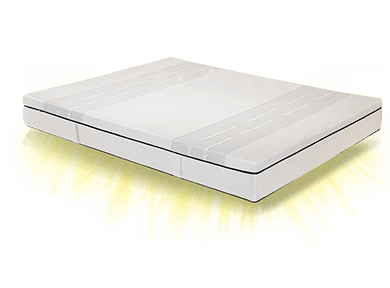Code of Business Ethics
1. Our Legal Responsibilities As Boyteks, we act within the framework of the laws and international law rules while carrying out all our domestic and international activities, work in cooperation with all public institutions and organizations, and accordingly provide all kinds of information, documents, documents and notifications requested from us correctly. We present it in a timely and understandable manner.We are sensitive about complying with the rules and requirements of all legislation related to the activities of our companies, especially financial legislation, and we expect the same from third parties and institutions with which we cooperate. We are always honest in our work and communication with public officials, and we do not try to influence their decisions with gifts, aid or other unethical offers.
While carrying out our activities, we keep an equal distance from all public institutions and organizations, legal bodies of the state and all political parties, without any interest.
Event: I know that a high-ranking government official who approves important documents related to our company's activities is looking for a job for his daughter, who has just graduated from university. In order to further improve our relations with this public official, can I offer to help his daughter get a job in our company?
Behaviour: Our basic principle regarding keeping legal records is that our transactions are open, transparent and within the framework of the rules of law. Since all our transactions are carried out within the rules of law, it is not appropriate for us to develop private (informal) relationships with public officials or to follow a process that is contrary to our existing human resources policy with similar offers. If the daughter of this public official applies for a job, she will be evaluated within the same framework as other job applicants.
2. Our Responsibilities Towards Customers As Boyteks, our primary goal in all areas where we do business and operate is to meet customer expectations at the highest level. From this point of view, we constantly work to develop new products that will increase the quality of life of our customers by predicting their needs in the most accurate way. We constantly renew ourselves by taking into account customer satisfaction and all kinds of feedback from customers. With our customer-oriented working approach, we work with an understanding that responds to all needs, demands and expectations of customers as soon as possible and focuses on resolving any problems that may arise as soon as possible.
As Boyteks, the service we offer with all our business lines; Our main principle is to deliver on time and under the conditions we promise. We address both our internal and end customers within the framework of the rules of respect and courtesy, and take a transparent and honest approach.
Event: As part of my job, I am constantly in contact with customers. Sometimes I am exposed to meaningless and unacceptable criticism from our customers about our products. In such cases, dialogues with customers sometimes lead to arguments, both in order to respond to criticism and to protect our company and brand image. What should I do in such dialogues that end in argument?
Behaviour: Due to our corporate culture, the satisfaction of both our internal and final customers and the positive or negative feedback from them are very important for our development. In such matters, we may not understand at first whether the customer is right or wrong. Even if there is no problem with our products, we need to convince customers by listening to their criticisms with patience and maturity. Instead of trying to explain to our customers that we cannot help them in a short time due to lack of personnel or workload, we should make an effort to find a solution immediately.
3. Our Responsibilities Towards Our Employees Our employees constitute the basic building blocks of Boyteks. For this reason, we value our employees as our most important resource and act with an understanding that will ensure that they work in good conditions, in harmony, satisfied with their jobs and embracing the job. We do not discriminate against any employee due to their characteristics such as language, religion, ethnicity and gender in all processes, from the recruitment phase to career and wage practices.
It ensures that our employees fully and completely exercise their rights arising from the law and the contract; We support their personal and professional development and provide the training they need.
We value our employees as individuals, keep their personal information confidential and use this information only within the framework required by law.
We aim to create a safe and healthy work environment for our employees by trying to eliminate all hazards that may affect them physically and mentally in our workplaces.
Event: Since one of our department colleagues is a family friend of our manager, he is always kept at the forefront of activities that will provide personal development, such as training and meetings related to our department. This situation demotivates me and my other teammates, reduces our work efficiency, and disturbs us in terms of our career goals. What can we do against this situation?
Behaviour: In accordance with our human resources policy, we provide equal opportunities to all our employees in all our activities within the scope of personal and professional training and career development programs for all our employees, and we determine the career plans and training needs of our employees according to their performances. In accordance with our policy, we never allow discrimination against our employees due to language, religion, ethnicity, gender or similar special relationships. We recommend that you share the issue with your two senior managers and the Human Resources Manager.
4. Our Responsibilities Towards Our Competitors We believe in the necessity of the free market in business life, and we act to maintain the competitive structure in all our activities such as price determination, buying and selling conditions, discounts and customer selection. We compete in compliance with the law within ethical rules and avoid unfair competition. We do not try to learn confidential information about our competitors, we do not rely on information that reaches us outside of legal means, and we do not use such information. We do not make any statements or actions that humiliate or damage the reputation of our competitors. We respect their copyrights. We expect our competitors to behave the same way.
In all our marketing activities such as products, services and promotions, especially Advertising Ethics, we act honestly and realistically in accordance with legal regulations and general morality, we avoid any action that may harm the reputation of Boyteks name and our brands, and we avoid including statements or phrases that disparage our competitors or our competitors' products in our announcements, advertisements and advertisements.
Event: The advertising agency working for a rival company in the same industry requested a meeting. During the meeting, they stated that they had extensive information about the company's new works, products and marketing communications; They said that they would like to share this information with us if we work together. We also asked for time to think. What should we answer?
Behaviour: It is neither legal nor ethical to create an unfair competitive environment by giving confidential information about the company to rival companies, either reciprocally or gratuitously, by employees or third parties. In addition, since someone who makes such an offer, explicitly or implicitly, does not have virtues such as commercial practices and business ethics, this company does not meet our group's supplier criteria.
5. Our Responsibilities Toward the Society We Live in and Humanity We work by respecting human rights and the values of different societies, and we take care not to contradict the generally accepted lifestyle, worldview and traditions of the society in our activities both in Turkey and in other countries.
The "Global Compact", an innovative corporate responsibility approach that proposes universal principles to create a common development culture in the constantly competitive business world, has been signed by some of our companies and basic universal principles are implemented.
We work to improve the education, culture, economy and social well-being of these societies in the communities where we do business, we avoid all kinds of attitudes and behaviors contrary to human rights such as illegal employment and abuse of child workers, abusive words and treatment against workers, involuntary labor and similar attitudes and behaviors, we expect all our suppliers and business partners to act in accordance with these issues, we terminate our commercial relations with persons and institutions that we learn that they do not carry the necessary sensitivity in this regard.
We do not include elements that are contrary to the basic values of the society, such as sexual abuse and violence, in our advertisements, and we avoid any symbols, expressions or insinuations that may lead the society to negative habits. We do not advertise derogatorily of any political opinion, religion, language or ethnic group.
Event: I work in the purchasing department. During my visit to the workshop of a supplier operating in the sub-industry field, I witnessed that there were young workers and that the workers stated in their conversations among themselves that they were working without insurance. What should I do?
Behaviour: Both the International Labor Organization and Turkish Labor Law legislation consider it illegal to employ children as workers in workplaces that are considered heavy and dangerous. In addition, employing workers without insurance is an illegal practice that disrespects society's values and labor. You must inform your manager of the situation without wasting time.
Event: In our companies, we provide aid to many foundations and associations in line with the requests from non-governmental organizations. I am also working in the department where these aids are provided. My manager makes a preliminary assessment of organizations requesting help based on his own personal approaches and worldview, and leaves some requests unanswered. What should I do?
Behaviour: Boyteks treats all institutions and organizations that overlap with the universal values of humanity with equal distance, regardless of religion, language, race or political opinion. For this reason, your manager must evaluate the requests with objective criteria and present them to the board that will approve the assistance. You must report the situation to the Ethics Committee or your superior manager.
6.Our Responsibilities Toward the Name “Erciyes Anadolu Holding” The name and brands of “Erciyes Anadolu Holding” symbolize the set of values revealed by more than 60 years of experience. Each employee of Boyteks represents these values together with his/her own behavior and behavior.
Boyteks employees strive to use standard corporate documents when representing the company and to provide standard information in their relations with third parties and institutions. They avoid conversations that will lead to comments and speculations and avoid using direct and indirect statements that may be against the company and the services it provides.
All of our employees avoid reflecting their personal opinions on social media and public environments, where listeners may have the impression that they are speaking on behalf of the institution, and express only the opinions of the institution.
In addition to the general principles stated above regarding the representation of the Boyteks name, some specific situations can be stated as follows.
Our employees,
- They avoid attitudes and behaviors that will damage the corporate image in recruitment interviews, meetings with existing and potential customers, telephone conversations, presentations, relations with suppliers / government departments / official authorities, and all kinds of meetings held on behalf of Boyteks and similar environments.
- They stick to the given appointment date and time, and keep their communications with third parties at a level that requires professionalism and does not damage the image of the institution.
- They know the importance of representing our institution to customers and third parties, and they choose their clothing in accordance with the Dress Procedure, without exaggeration, and in line with business discipline and seriousness.
- Boyteks knows that it is necessary to obtain the relevant approval for the distribution or publication of any document that will contain the brand's logo and to work in coordination with corporate communication, advertising units and relevant company managers in printing the document that will include the logo.
- It accurately records interview requests and questions from all kinds of media organizations, including television, radio, newspapers, magazines, local/national and commercial media and websites (name of the caller, affiliated broadcaster, telephone number, subject, etc.) and corporate They transfer it to the communication unit.
- They do not make statements or behaviors that would give the impression to the public or on social media that the Boyteks name is involved in any political-ideological association.
Event: I attended a conference with my colleague at one of the leading universities in our country to share our knowledge and experience. While answering the questions in the last part of this conference, my friend expressed his personal thoughts and evaluations - without stating that it was his own opinion. My friend's answers not only did not comply with Boyteks values, but also highlighted his own political views. How should I behave in this situation?
Behaviour: If you think and foresee that this behavior will create a negative perception in the audience in terms of the values carried by the name Boyteks, you should appropriately warn your friend during the direct conversation and prevent him from making these statements. If your friend is insensitive, you should share this situation with your senior manager and ensure that you are more careful and controlled in the next organization in order to protect the values of the institution you are a member of.
Event: Recently, there have been a few negative comments about our brand on social media. One of my friends responded to these comments in a very harsh and inappropriate manner, stating that he was a Boyteks employee. I do not approve of my friend's tone here. But how should we proceed against unfair criticism?
Behaviour: In order for our institution to have a holistic attitude towards the public and especially the media, it is harmful for employees to make statements of their own will and means. Our corporate communication and public relations units should manage our communications through media channels. Our friend's reaction is a wrong behavior that does not suit the name of "Boyteks" , even if he has good intentions. Instead of reacting individually, the right thing to do should be to forward the issue to our corporate communication unit.
7. Our Responsibilities to the Environment As Boyteks, knowing that fulfilling our responsibilities towards the environment also means fulfilling our responsibilities towards our employees, society and humanity, we act with environmental awareness during all our services and activities and operate our facilities at standards that will not cause environmental pollution.
As Boyteks, we focus on sustainable growth and develop and implement ways and methods that will minimize the long-term negative environmental impacts of our activities. We keep natural resource consumption to a minimum level during all manufacturing processes, including the construction infrastructures of all our businesses, installations such as heating, cooling, electricity and water.
We ensure that the materials used in the process from the manufacturing stage to the delivery of the product are among the raw materials and materials that cause the least harm to the environment. By including waste other than household waste in the recycling circle, we keep the damage we do/will cause to nature to a minimum.
Event: A few days after the production we made with the chemical material we purchased from the sub-industry company our company works with, it was understood that the last batch of the chemical material we purchased was harmful to the environment and human health. However, during this period, we carried out our production with this material and the products reached the sales points. What should we do about this?
Behaviour: First of all, it is a requirement of both the law and our corporate culture that our products should not harm human health. These products must be detected during inspections in quality control departments. You should report the situation to both your relevant manager and the department that made the mistake in checking the products. In addition, products at sales points must be withdrawn, renewed if possible, or destroyed if not possible, before reaching the consumer, regardless of the cost.
Event: I am the technical officer responsible for the maintenance and repair of the filter system in our production facility. A few weeks ago, I observed that the filter system was not working very well and I fixed the problem by making the necessary repairs. Now I observe that this malfunction has reappeared. I am an engineer who has been doing this job for many years and knows the system well. Even if this filtering system currently fulfills the legal requirement, I think that if the system is not renewed, this malfunction may occur frequently and in the future, the system may not be sufficient to filter waste gases, even for a short time. I also shared this with the relevant managers in our company. However, some managers think that this is costly and that it would be better to repair the filter system and work in this way. There was an argument between us about this issue. As an employee who is an expert in this field, should I insist on my request to change the system?
Behaviour: As Boyteks, we have great sensitivity about the environment. The environmental impacts of our production activities must be handled with sensitivity beyond legal requirements. In this sense, it should be our basic principle that all our activities be managed within the framework of sustainable growth criteria. If the managers you share the issue with do not show this sensitivity, you should bring this situation directly to the Ethics Committee without hesitation. The Ethics Committee will verify the issue you have identified with other independent evaluations and ensure that the necessary measures are taken and the system is renewed if necessary.
8. Information Security and Social Media Information at Boyteks; It is defined as all data, text, images, sounds and similar contents in physical or digital media produced, used, transmitted, archived or legally transferred to the company during business processes. Boyteks' strategic information, organizational information, commercial/technical/financial data, customer/dealer information, policy/procedure/regulations, product, service information, employee personal information and all other information, but not limited to these, are evaluated within this scope.
At Boyteks, all business-related and non-public information has the status of confidential information, and this information is not shared with third parties outside the company, except for the requirements of the current task. While transparency is the main principle within the company, care is taken to share information to the extent required by the current task. All information developed by Boyteks employees, acquired by the company or revealed within the requirements of the job belongs to the company and is considered a trade secret. All kinds of data such as the company's products/services, financial information, technical information, business development information, information about customers/suppliers, information about employees and similar data that are not shared with the public in written or printed form, in electronic media or in computer programs belong to the institution and are confidential information. is evaluated within the scope.
All employees are responsible within the scope of their individual duties for the healthy operation of the information security systems established to protect confidential information in our institution. Erciyes Anadolu Group employees take due care to ensure that any information and/or documents they use and access while performing their duties are not lost and, in addition, the accuracy or integrity of such information and/or documents is not compromised.
Our employees know that all information (financial information, customer information, personnel information, etc.) and/or documents they access due to their duties are confidential and they do not share them with third parties (persons other than Boyteks). They act in accordance with personnel loyalty principles, confidentiality principles and non-competition principles.
Social media is widely used in our institution to promote communication opportunities and within the framework of the necessity of business life. Social media or internet services are primarily available for business use and to a limited extent for personal use. Employees are aware that all information accessed and sent electronically is monitored and controlled by the company. It is the responsibility of employees to protect the passwords used for internet access and e-mail services.
In addition to the general principles stated above regarding information security and the use of social media tools, some examples of situations can be stated as follows.
Regarding information security, our employees,
- They must attach importance to the confidentiality of confidential and/or trade secret information and adhere to the principles of loyalty and confidentiality.
- They report information security violations, security vulnerabilities and any suspicious situations within the institution to the relevant units and persons.
- They protect the confidential and private information of employees, customers, suppliers, business partners and other people and organizations they work with and do not use this information for purposes other than business purposes.
- They do not share the information and documents obtained as part of their work with unauthorized persons or authorities within or outside Boyteks, and they do not use them for personal purposes in any way.
- Even after leaving Boyteks, they do not use the information and documents they have against Boyteks or in favor of competitors.
- Patents, trade secrets, copyrights, names and trademarks, etc. They attach importance to the protection of intellectual property.
- They do not forget that it is forbidden to leak any confidential information and/or documents within the scope of "Insider Trading" and to gain profit through the stock market or any other means.
- When some information needs to be shared with third parties due to business requirements, they ensure that this information is shared in a way that will not harm the company (confidentiality agreement, etc.) by informing the information security / relevant unit and obtaining approval from the senior manager.
- They do not forget that the e-mail account provided by the company is allocated for company business and can be audited.
- They do not use the technological communication tools provided to employees for their individual purposes in order to exchange information within the business relationship.
- They avoid any behavior that may threaten the physical/environmental security of PCs, Laptops, Servers and similar information processing and production devices.
- They ensure that the sharing of information and documents requested by Regulatory Bodies and Independent Auditors is done accurately, understandably and on time, in accordance with company practices.
- In case of unauthorized/inadvertent access, exposure or sharing of confidential information for any reason, they apply to the information security unit.
- Individual visitors come at a reasonable frequency, and in these mandatory cases, meetings are held in the canteen, cafeteria or meeting room after the approval of the unit managers.
- They do not take out any electronic and/or written documents (CD, portable memory, etc.) containing information and data other than business purposes outside the company. (Administrator's approval is obtained when necessary.)
- They know that the authorization to install software on the entire system is made by the Information Technologies Department and that they can access music, pictures, movies, etc. They do not install or use programs that enable files to be shared or downloaded on the internet.
- They do not send e-mails called "chain letters" .
- Necessary attention and care must be taken in the use, sharing, storage, and protection of the accuracy and integrity of all kinds of information and documents. The published "Information Security Policy" document should be followed, and since the issues to be followed in this document are explained in detail, the relevant document should be obtained and read.
Behaviour: Our employees cannot share any information about the company with third parties on the basis of confidentiality. The ownership of all documents produced regarding work belongs to the institution. Even if your friend had a report he prepared in the past after leaving the company, you should not share it with him.
Event: I use my e-mail address with company extension on social media. Is this behavior ethically correct?
Behaviour: Nowadays, when communication has become very widespread, e-mail addresses with company extensions should not be used, especially when making private and personal shares in social media.
9.Relations with Suppliers and Customers It is important that the positive perceptions of suppliers and customers about Boyteks are protected and maintained by all employees.
Boyteks employees do not derive personal benefit from commercial transactions with suppliers and customers, do not use corporate information and positions for their own benefit, do not enter into commercial competition with the institution, and do not engage in close relationships with people or organizations that would benefit from the information they have as part of their job. In this sense, employees do not become owners or profit partners of a supplier or any competitor with which the company has a direct business relationship.
In business relationships with organizations owned or profited by employee relatives, it is expected that parallel business conditions are provided to similar suppliers/customers, that these conditions are met through periodic internal audit reports, and that the business relationship in question is completely outside the employee's individual scope of duty. However, even if all these conditions are met, the relevant company's Board of Directors is required to express its express consent.
Employees must not have a financial interest relationship with suppliers/customers and rival companies such as borrowing, guaranteeing or similar, and their social relations with suppliers/customers must not be intense enough to harm the professional business relationship and their personal purchases from suppliers must not be of a nature that would give them an advantage beyond ordinary commercial conditions.
As a principle, we do not accept gifts from our business partners. However, it is possible to accept gifts received from our business partners (or given to them) if they comply with commercial practices, remain in good faith and are not at a level that would affect the objectivity of our decisions. Hesitations that may arise on this issue can be resolved by taking into account the limits and rules determined in the gift procedure.
In addition to the general principles stated above for relations with suppliers and customers, some specific situations can be stated as follows.
- Our employees cannot use their duties and powers in the institution in any way for personal or private benefit for themselves, their families or third parties.
- Employees working in the company's purchasing functions do not establish individual commercial relationships with the suppliers they are in contact with due to business relationships.
- If an employee who leaves the workplace becomes a potential supplier, no commercial relationship can be established between him and the organization for two years - except for special permissions received from senior management. If the person leaves the job by becoming a partner of a supplier with whom he had a previous business relationship, existing commercial contracts are re-evaluated and action is taken in line with the opinion of the Ethics Committee.
- Our employees do not request the employment of their relatives or acquaintances to any supplier company with which they have a business relationship due to their duties in the company.
- Employees can participate in activities organized by customers or institutions of which we are customers, provided that they remain within acceptable limits (with the knowledge of the company's senior management).
- Customers or suppliers may be permitted to pay for meals consumed during meetings where business matters are discussed and reviewed, or for other expenses consistent with business requirements.
Behaviour: Our employees should never use their duties and powers for their personal interests. Although the business relationship with the printing house may seem normal from the outside, it is understood that there may be an unethical situation in this case. You must report your observation to the Ethics Committee without wasting time. If the manager you mentioned is directly involved in the decision-making body in the business relationship established with the supplier, it means that the current business relationship has become even more problematic. The Ethics Committee will examine the issue in terms of compliance with ethical standards and ensure that the necessary measures are taken.
Event: Due to my job in the marketing department, I frequently visit dealers. During one of my visits to a dealer whom I have known for many years, while chatting with our dealer, I mentioned that I would soon get a pre-marriage consumer loan. Our dealer stated that he would direct me to a banker he knew about getting a loan and that he could also act as a guarantor for me if I wished. Is it ethically objectionable for me to accept this suggestion?
- They communicate openly and transparently with all our stakeholders within the boundaries of commercial confidentiality. Prevents improper disclosure of confidential information; They limit the disclosure of confidential information to only individuals who need that information to do their jobs.
- They disclose any information of which we are aware that clearly indicates that any of our products or services that we supply or manufacture violate internationally accepted safety standards or principles.
- Close relatives (spouse, sibling, child, mother, father) are not employed within Boyteks. (In case employees get married while working in the same units, a company change is made for one of the employees)
This booklet covers Boyteks employees, and customers, suppliers and all third parties with whom we have established business partnerships are expected to take the content in this booklet into consideration when doing business with Erciyes Anadolu Group.
In addition to the requirement that our managers and employees personally act in accordance with ethical rules throughout all business processes, starting from the supplier selection stage; Our managers and employees are directly responsible for ensuring that our suppliers, customers and business partners behave in accordance with the ethical values and ethical rules of Erciyes Anadolu Group.
Behaviour: It is extremely harmful for our employees to engage in a relationship of interest such as borrowing money, suretyship or the like with our customers or suppliers, both in terms of the issues to be taken into consideration in relations with customers and suppliers and in terms of our responsibilities towards "Erciyes Anadolu Adı". You should politely reject the dealer's suggestion and explain to him the sensitivity of our institution on this issue.
Event: One of our suppliers, who has been serving our companies in the field of architectural projects for many years, stated that he could help me with the architectural project of my new detached house. When I asked him about the cost of this, he told me that he had a similar detached house project and that sharing this project with me would not bring any additional cost to him, so he did not charge a fee. Is there any harm in getting help from this supplier?
Behaviour: If you were not an employee of Boyteks, it would not be possible for this architectural project office to share its current project with you without charging any fee. In this case, even if this suggestion does not impose any burden on the other party, it will mean that you use your duties and authority in our institution for personal gain. It is incompatible with our ethical values for our employees to purchase goods/services from our suppliers free of charge or at a comparatively low price. On the other hand, our employees who work in decision-making bodies in relations with our customers and suppliers must not establish individual commercial relations with the customer/supplier in question under any circumstances.
Event: In the last days of the year, our department receives gifts on the occasion of the New Year from the companies we work with. Is it appropriate for us to accept these gifts, many of which do not carry significant financial value?
Behaviour: It is possible to accept gifts that comply with commercial practices and do not have a value that would affect the objectivity of our decisions. You can review the Boyteks Gift Procedure to get more detailed information about which gifts will be accepted and which will not.
10.Use of Corporate Resources: The movable properties belonging to our companies, all kinds of material benefits obtained through company means, human and information resources constitute the corporate resources. When using resources on behalf of our institution, the interests of the institution are taken into account.
In particular, the employment of human resources in line with the interests of the institution is essential, and managers assigning employees to their personal work also constitutes a violation of this principle.
Employees are expected to use all kinds of vehicles, fixtures, goods and facilities allocated for their work, without damaging them, within the framework of due care obligations and only for the institution. For example:
- Long-term personal conversations made on a dedicated phone,
- Excessive and unnecessary expenses during business travel,
- Allocation of company staff's time to the manager's personal affairs,
- Use of company vehicle for the benefit of third parties that cannot be directly associated with the institution,
- Any behavior that prevents the use of common areas or damages fixed assets can be evaluated within this scope.
Behaviour: Here, the approach of the employee in the financial affairs department is correct. What is important is not the size of the expense, but the request from our institution for an expense that cannot be directly associated with business travel. It would be appropriate to evaluate the issue around this principle. Our institution pays all daily expenses of its employees during business trips in return for documents, and in addition, in accordance with the travel procedure, it allocates a travel allowance so that you can cover your personal expenses on trips of a certain length.
Event: I work as a technician in the maintenance department. Some of our senior managers in our company assign me a task to troubleshoot electrical problems in their homes from time to time. I personally do not find this issue correct. I even tried to express it to my manager once, but he told me that there was no harm in providing such small services when work was available. What should I do?
Behaviour: Our employee workforce is part of our corporate resources. It is not right to use the resources allocated for the institution for special purposes. On the other hand, the structure in which you perform electrical repairs may not meet the occupational safety standards in our workplace. In case of a possible work accident that occurs during the service you provide during working hours, the company you work for will be under legal liability. You must report the issue you reported to your manager to the senior manager in your company or directly to the Ethics Committee.
11. Responsibilities of Managers In Erciyes Anadolu Group, managers at all levels adopt ethical rules and become pioneers and examples in their adoption among unit employees.
In this context;
- Managers encourage their subordinates to share, question and comment on the Code of Ethics.
- They take every issue they are consulted about regarding ethics seriously and, if necessary, forward it to the Ethics Committee as soon as possible.
- They create business processes in a way that minimizes the risks in ethics-related parts, taking into account all ethical procedures during the work they are responsible for.
- They know the instructions and regulations published within the institution and follow any changes and inform their subordinates as necessary.
- They immediately inform the senior management on issues that legally concern the organization and do not resort to individual solutions.
- They are willing to take initiative regarding their duties and do not consciously avoid using their authority and responsibilities.
Our employees,
- They do not harass or disturb their colleagues physically, psychologically or socially, and do not engage in violent attitudes and behaviors.
- They do not use drugs and/or stimulants and/or alcohol in offices, and they certainly do not come to the workplace this way.
- They only incur debt to legally authorized institutions and organizations, and do not enter into debt and guarantee relationships with each other in a way that would damage the image of the institution.
- They do not commit theft, abuse of security, forgery, fraud, slander, bribery, embezzlement (disgraceful crimes) inside and outside the company, and they fulfill their duties and responsibilities towards the state as individuals who respect social law and laws.
- They work with good will and effort to fulfill the duties and responsibilities specified in their job descriptions with a minimum level of error.
- They know and follow the working hours determined and announced for them, they give excuses when they do not come to work or come late, and they do not change their working hours without the knowledge of the manager or the Human Resources Department.
- They attend all trainings planned for them and all organized meetings.
- If they have information about application violations within the company, they report this to their senior manager and/or the relevant unit.
- Full-time, contract and part-time employees do not work for a fee in a similar business line in competing companies, including paid/unpaid leave. Since it is not appropriate to work in side jobs or in consultancy or similar positions that require payment of a fee, other than a competing company, in accordance with our wages and working conditions, the employee personally informs his/her supervisor and consents to the evaluations to be made in terms of competition, loyalty and performance due to his/her work.
- They know that false, misleading and exaggerated information in communication will prevent the transmission of the correct message, and therefore they take care to establish healthy communication.
As can be seen from the examples below, unethical situations and behaviors can appear in many different dimensions.
- Managers giving unethical instructions and guidance to their subordinates,
- The employee himself/herself behaves contrary to ethical rules and corporate values,
- The employee sees his/her colleague in a behavior contrary to ethical rules or corporate values,
- In our ongoing relationships with our business partners (customers, suppliers, etc.), the owners, managers or staff of these companies make unethical offers or demands to our employees.
- Our employees making unethical offers or requests to our business partners (customers, suppliers, etc.).
- Is the behavior contrary to our principles and traditional knowledge?
- Is the behavior contrary to professional standards and the rules outlined in this booklet?
- Does the behavior conflict with the interests of the organization?
- If you were to engage in this behavior, would you be in a difficult situation if others heard about it?
- Could the behavior have negative consequences for our company if it were heard by the public, our customers and other stakeholders?
- Is the behavior clearly against the law and corporate regulations?
- If a third party outside the company objectively evaluated the situation you witnessed, would they perceive it as unethical?
- Does the behavior shake your sense of justice when you evaluate it conscientiously?
Our employee must analyze the situation and if he answers "yes" to one or more of the above questions, he must report this situation to the relevant authorities.
14. Ethics Committee Working Principles and Resolution of Incompatibilities Ethics Committees established within the group companies work under the Ethics Supreme Council. Company Ethics Board; It consists of a chairman, three members, an independent member (an expert consulted on the relevant subject in case of need) and a secretariat, and begins its activities after the approval of the Board of Directors, which is announced to all employees by the Company HR unit. Duties and Responsibilities of the Ethics Committee:
- Investigating complaints and notices of violation of ethical rules within the company,
- To decide on the ethical rule violations investigated or to have them concluded,
- To provide opinions and suggestions regarding the implementation of ethical rules,
- To respond to applications made for consultancy purposes within the scope of Boyteks ethical rules,
- To ensure that ethical rules comply with legal regulations,
- To inform employees about ethical rules and to be in constant communication with employees to ensure the understanding of policies and rules,
- To ensure that those who start working in the company and all employees read the ethical rules and are informed about this issue.
All our employees can verbally report their questions about the rules of conduct and any suspected violations, as well as use the communication channels specified below of the Company Ethics Committees established within the group companies.
BOYTEKS TEKSTİL SANAYİ VE TİCARET A.Ş:
E-Mail Address: ethical@boyteks.com
Address: 1. Organize Sanayi Bölgesi 8. Cad. No: 60 38070 KAYSERİ This board, with its function of evaluating violation notifications, is a body where all employees can consult about situations they consider suspicious and dilemmas they experience regarding ethical issues. In addition, we are open to any suggestions from our employees in order to improve ethical awareness in our community and take protective/preventive measures to prevent ethical violations.
In the notifications made to the Ethics Committee, the Company Ethics Board is assured that the notification will not have any negative impact on the employee making the notification, provided that he/she does not make any notifications that are not in good faith, and that any notifications to be made will be kept strictly confidential.
Complaints and notifications received by the Ethics Committee are handled and investigated within the framework of confidentiality principles, and every stage of the investigation is recorded in minutes. The Ethics Committee has the authority to receive relevant information, documents and documents from any unit it deems necessary regarding the subject it investigates. The Board takes the necessary measures to quickly conclude investigations regarding violations, and if it deems it necessary for the fair conduct of the investigation, it may receive support from experts and experts, taking into account confidentiality principles. Reported or detected rule violations can be resolved by the company ethics board, by the Chairman of the Ethics Board, taking into account their nature and effects, or they can be resolved without the participation of the Ethics Board by referring them to the company disciplinary board or the Holding's internal audit department or the Ethics Supreme Board.
The Ethics Committee carries out its work with the assumption that each employee acts in accordance with ethical rules, unless the contrary is clearly demonstrated. An employee about whom a complaint or notification has been made on the grounds of unethical behavior is given the opportunity to express himself/herself within the scope of the complaint/notification. In addition, during the investigation process, it is assumed that the employee subject to the investigation has not committed any violation until the allegations against him/her are concretely verified.
When the Ethics Committee receives a notice or an opinion is requested, it convenes upon the invitation of any of the Board Members. The Board may invite people it deems appropriate to meetings to obtain information on matters deemed necessary. The Chairman of the Ethics Committee is responsible for the implementation of the Ethics Committee working principles.
Reports of violations of ethical rules regarding the company's ethics board and its members can be made directly to the Ethics Supreme Board, verbally or in writing (email to ustik@erciyes.com or to Erciyes Anadolu Holding 1. Organize Sanayi Bölgesi 6. Cad. No:35 KAYSERİ).
Working Principles of the Supreme Board and Resolution of Incompatibilities Erciyes Anadolu Holding A.Ş. The Ethics Supreme Board established within the body works under the Chairman of the Board of Directors. The Ethics Supreme Board consists of a chairman, three members, an independent member (an expert consulted on the relevant subject when necessary) and a secretariat, and begins its activities after the approval of the Board of Directors, as announced to all employees by the Holding HR unit.
Duties and Responsibilities of the Ethics Supreme Board:
- To investigate complaints and notices regarding violations of ethical rules in the holding,
- To resolve or have the resolution of unresolved ethical rule violations referred by the Company Ethics Committees,
- To decide on the ethical rule violations investigated or to have them concluded,
- To provide opinions and suggestions regarding the implementation of ethical rules,
- To respond to applications made for consultancy within the scope of Boyteks Code of Ethics,
- To ensure that ethical rules comply with legal regulations,
- To inform employees about ethical rules and to be in constant communication with employees to ensure the understanding of policies and rules,
- To ensure that those who start working at the holding and all employees read the ethical rules and are informed about this issue.
Holding employees can verbally report their questions about the rules of conduct and any suspected violations, as well as use the communication channels of the Ethics Supreme Board specified below.
E-Mail Address: etik@boyteks.com
Address: 1. Organize Sanayi Bölgesi 8. Cad. No: 60 38070 KAYSERI/TURKIYE



































